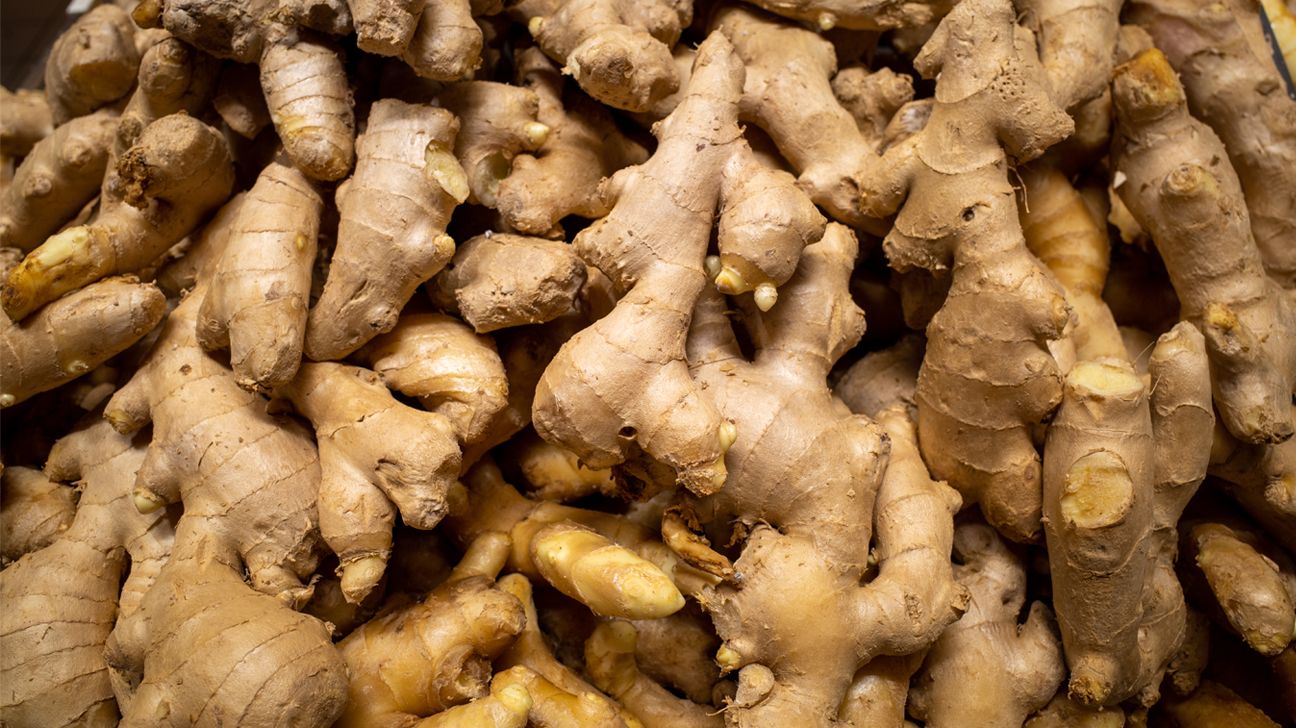
- Ginger root has a long history as a medicine, particularly as an anti-inflammatory ingredient.
- New research suggests ginger could be helpful in individuals with certain autoimmune disorders.
- Researchers also appear to have identified the biological mechanism through which ginger affects inflammation in the body.
Ginger root has been used medicinally for thousands of years; now physicians believe it could play a role in treating autoimmune diseases like lupus.
Although ginger has been recognized generally as containing certain anti-inflammatory compounds, specific details like its mechanism of action and dosage have not been well established in a clinical setting.
New research can help establish a clear understanding of how ginger interacts with the body on a biological level and how it can mitigate inflammation in individuals with certain autoimmune conditions.
In a study published this month in the biomedical research journal JCI Insight, researchers found that ginger supplementation affected a biological process in the body known to cause inflammation. The work included positive results in both animal and human studies.
“Ginger has been generally associated with reduced inflammation in people. What’s new with our study is that we demonstrate a specific pathway by which ginger exerts an anti-inflammatory effect and specifically in people, which more strongly supports the use of ginger supplements in people to lower inflammation,” Dr. Kristen Demoruelle, PhD, Associate Professor of Medicine at the University of Colorado School of Medicine, and co-author of the study told Healthline.
At the center of the research is the effect of ginger on cells called neutrophils, which are an integral part of the body’s immune system.
Neutrophils are the most abundant form of white blood cell in the body and are considered the “first line of defense” against intrusive microorganisms like bacteria, viruses, and fungi. Neutrophils are constantly being produced in the bone marrow and are deployed to destroy pathogens that pose a threat to the health of the body.
As part of the first line of defense, neutrophils are equipped with different ways to attack pathogens.
Part of the arsenal includes
Inflammation is not inherently a bad thing, in fact it is an integral part of
“NETs can block off invading infections and they contain proteins that help fight infections, but NETs also contain proteins that lead to inflammation and in some people these NET proteins can trigger autoimmunity that could lead to an autoimmune disease. Once someone has an autoimmune disease, like rheumatoid arthritis, antiphospholipid syndrome or lupus, NETs can contribute to ongoing inflammation,” said Dr. Demoruelle.
Demoruelle and her team looked at the effect of ginger supplementation both in autoimmune mouse populations and healthy human populations and found that it was able to inhibit NETosis, and therefore inflammation, as well as affect other relevant biomarkers.
In mice models for both
The hypothesis was also tested in healthy human trials. In one trial, nine healthy adult individuals were recruited and consumed 100mg of a ginger supplement once daily for seven consecutive days. Researchers found that ginger consumption had the effect of altering neutrophil functioning, but the effect disappeared after ginger consumption ended at the end of the trial.
Then in a second study to validate these initial results, eight healthy adult volunteers were again recruited using the same methodology. The second study reported similar findings, confirming the results of the initial trial.
“We are beginning to better understand the complex molecular mechanisms by which these compounds in ginger may be exerting their beneficial effects on the immune system, and this particular study elucidates an important mechanism,” said Dr. Tamiko Katsumoto, Clinical Assistant Professor, Division of Immunology and Rheumatology, Stanford Medicine. Dr. Katsumoto wasn’t affiliated with the research.
“This study underscores the take-home message that food is medicine; and sets the stage for a randomized controlled trial using ginger for the treatment of lupus,” she added.
Ginger contains hundreds of compounds, many of which have been identified as having both
Anti-inflammatory components such as gingerol, could very well play a role in ginger’s widespread use to help improve certain conditions.
If you’re interested in getting more ginger in your diet, there are many great ways to do so, from ginger shots to cooking and supplements. Kristin Kirkpatrick, MS, RDN a dietician with the Cleveland Clinic, recommends trying to use whole ginger in your diet before using ginger supplements.
“I ask my patients to consider adding ginger from foods first. This can be done by adding ginger to tea, grating in salads and on top of vegetables, adding to smoothies. If adding to foods is not something you are likely to do, then consider a supplemental form,” she told Healthline.
“What we know is that diets that are high in plants may help in reducing inflammation levels. There seems to be a trend in the data that ginger consumption or supplementation may positively impact inflammation,” she said.
In both mouse and human experiments, oral consumption of ginger supplements mitigated certain biological processes known to play a role in inflammation.
Although more research is necessary, ginger could play a supporting role in the treatment of certain autoimmune disorders, including lupus.

